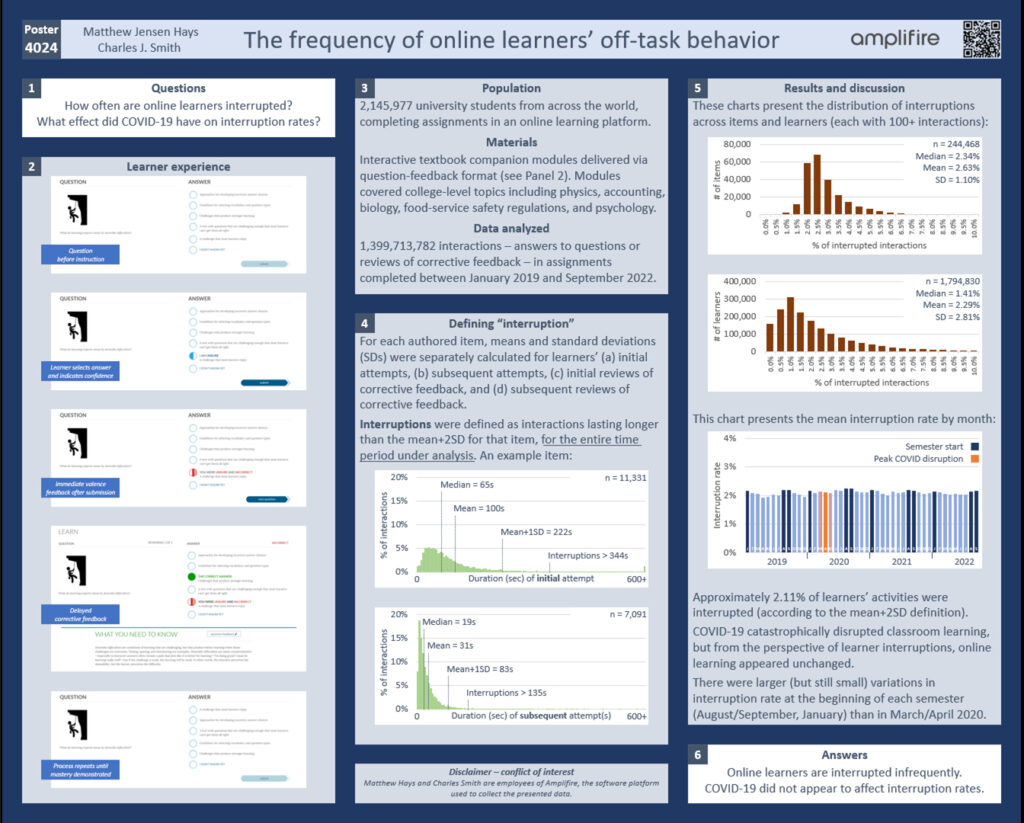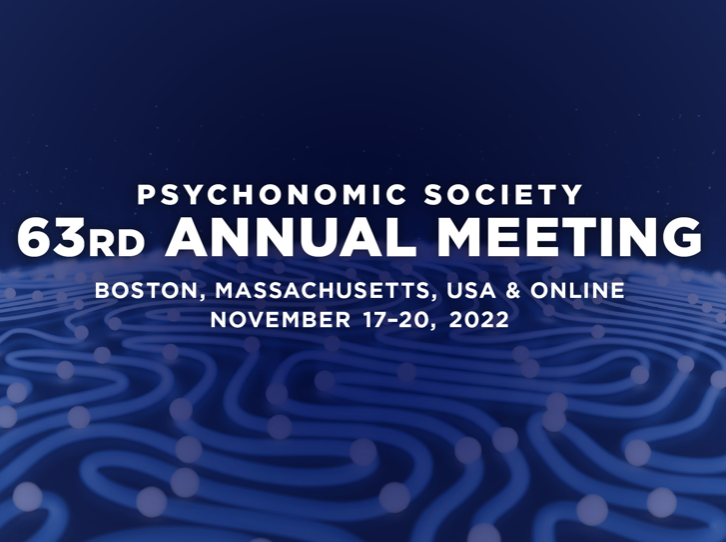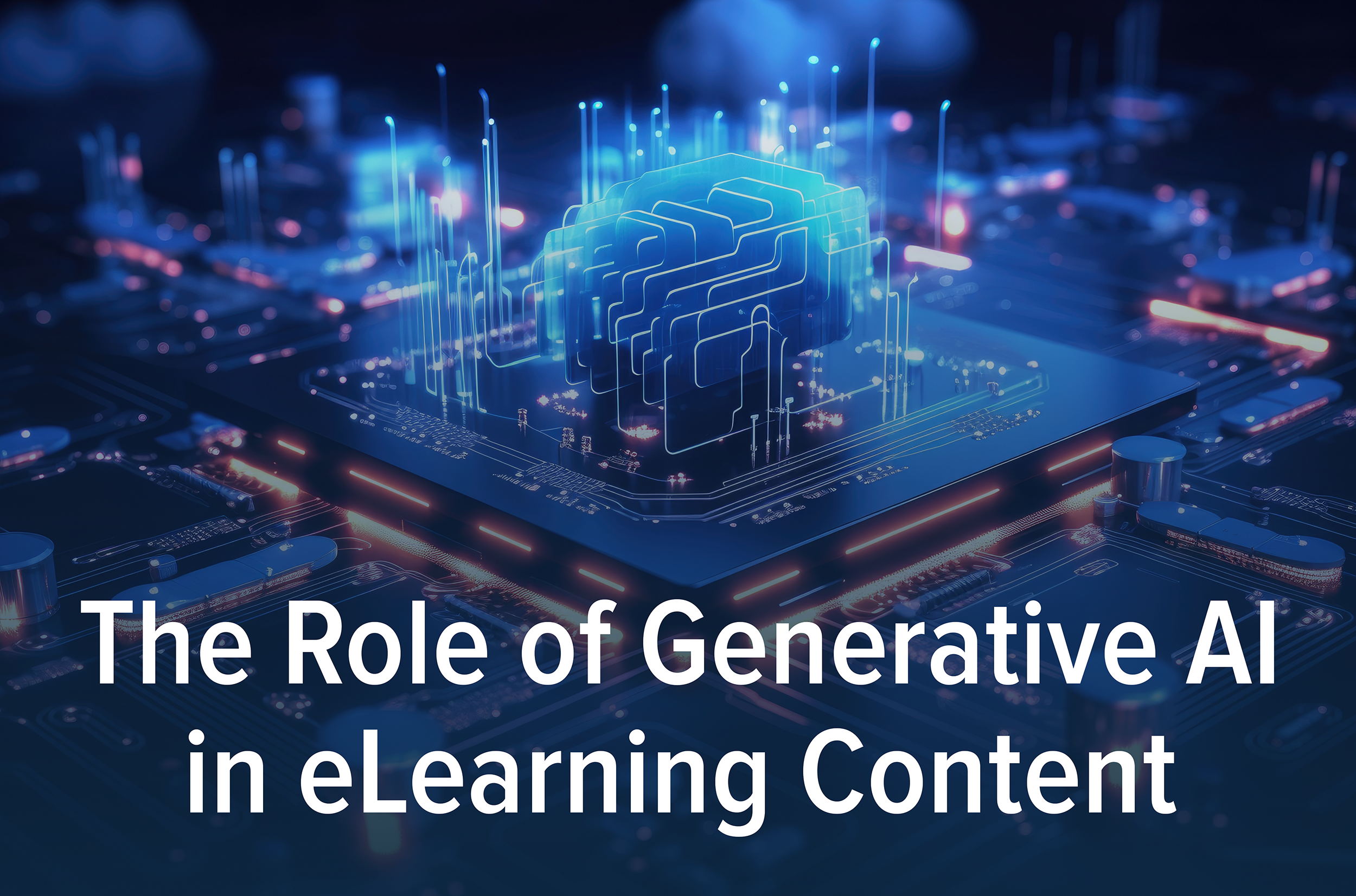By Matthew Hays, Ph.D.
The Annual Meeting of the Psychonomic Society is the premier international cognitive psychology conference. Attendees include many of the members of Amplifire’s Science Advisory Board, several of whom have previously chaired the Society and delivered keynote addresses.
I began attending and presenting at Psychonomics almost 20 years ago when I was working in the Bjork lab. Unfortunately, the conference was sidelined by COVID for the last couple of years.
That disruption motivated the research that we presented at the 63rd Annual Meeting last month as the conference triumphantly returned.
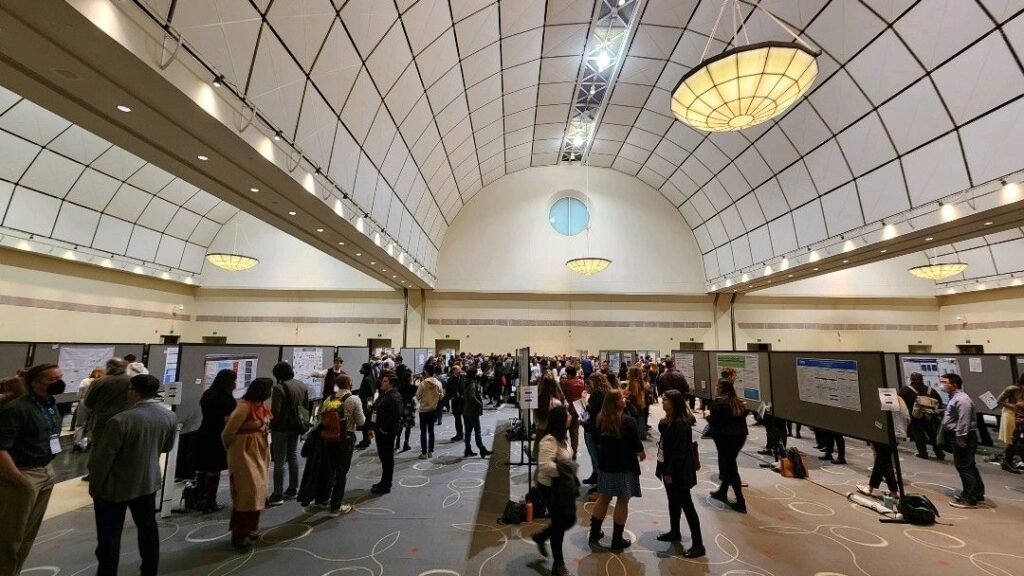
As we previewed a couple of weeks ago, the Research & Analytics Team at Amplifire investigated the extent to which COVID disrupted online learning. We defined and measured the frequency with which online learners were interrupted. We then looked at that frequency by month. Of course, we expected to see massive spikes in the spring of 2020…but we didn’t. In fact, there were bigger bumps at the beginning of semesters than during the pandemic’s peak.
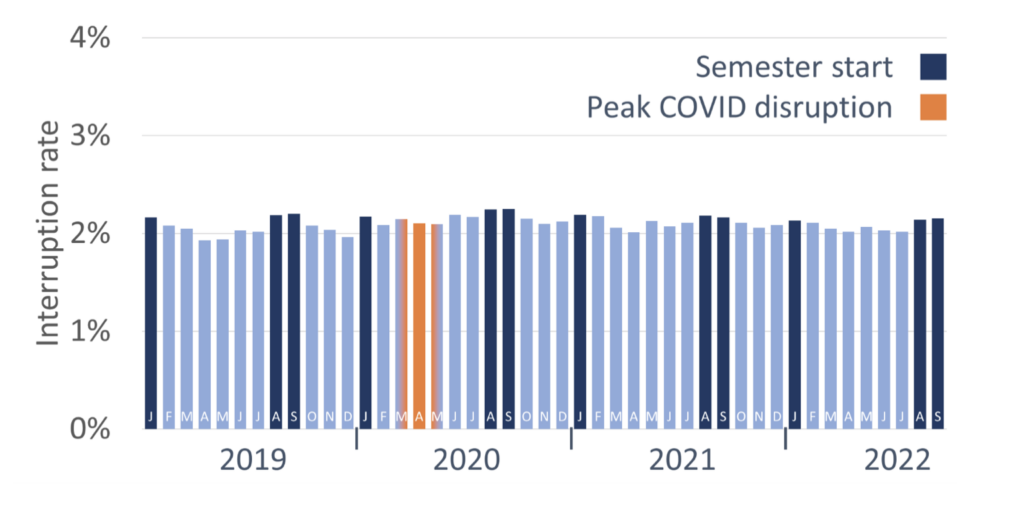
Some of the cognitive scientists we spoke to at Psychonomics shared our surprise. Others found our results to be completely consistent with their intuition. Although classroom learning was upended, online learning didn’t change much. That’s especially true for a platform like Amplifire, which was designed for online use – versus, say, Zoom school. Based on the interruption data, students continued to use our software just as they had before the pandemic closed schools, dormitories, and playgrounds.
This experience underscored the value of presenting research at academic conferences. When expert colleagues help interpret your discoveries, everyone benefits. And the feedback we received motivated additional analyses that helped support these scientists’ hypotheses. For example, we had another client that used Amplifire in the classroom and transitioned to remote learning when lockdowns went into effect. Preliminary reviews of their Amplifire learning data indicate that this transition was very problematic. The key is context; when it is disrupted, learning suffers, but when it is consistent, learning endures.
Another researcher invited us to write these results up for publication in an upcoming special issue of the Journal of Intelligence. If you’d like a sneak peek at what we’ll be publishing, reach out here!
